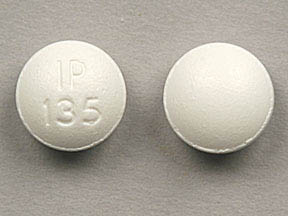
Eq Ibuprofen Coupons & Savings Card – Discount Prices from $5.07
Brand for: Ibuprofen
My prescription
Edit
200MG, Ibuprofen (30 Tablets)
Select pharmacy

Walgreens
$5.07
COUPON PRICE
Albertsons
$5.07
COUPON PRICEEq Ibuprofen savings card
Show this card to your pharmacist
Walgreens
$5.07
BIN
ID
PCN
GRP
011867
LH6572C562
HT
LABH001
Powered by
More prescriptions for rheumatoid arthritis
More prescriptions for rheumatoid arthritis
Price history for Eq Ibuprofen (brand) & Ibuprofen (generic)
30 Tablets, 200MG
Average retail price for Eq Ibuprofen
Average retail price for Ibuprofen
Average SaveHealth price for Ibuprofen
Our price history data is based on aggregated prescription data collected from participating pharmacies in America. Our prescription data updates daily to reflect the latest price changes. If you notice a missing data point, it means there wasn't sufficient data available to generate a monetary value for that date.
Over the last 12 months, the average discount price of Eq Ibuprofen is $5.25 using the SaveHealth savings card. That's an average savings of -183.78% on Eq Ibuprofen with our discount card.
*Retail prices are based on pharmacy claims data, and may not be accurate when we don't have enough claims.
Eq Ibuprofen (Ibuprofen) dosage forms
Dosage Quantity Price from Per unit 200MG 30 Tablets $9.84 $0.33 200MG 15 Tablets $9.42 $0.63 200MG 20 Tablets $9.56 $0.48 200MG 21 Tablets $9.59 $0.46 200MG 90 Tablets $11.52 $0.13
| Dosage | Quantity | Price from | Per unit |
|---|---|---|---|
| 200MG | 30 Tablets | $9.84 | $0.33 |
| 200MG | 15 Tablets | $9.42 | $0.63 |
| 200MG | 20 Tablets | $9.56 | $0.48 |
| 200MG | 21 Tablets | $9.59 | $0.46 |
| 200MG | 90 Tablets | $11.52 | $0.13 |
Eq Ibuprofen Warnings
When using nonsteroidal anti-inflammatory drugs (NSAIDs) such as ibuprofen, it's important to be aware of potential risks and necessary precautions. Below is essential safety and warning information to consider:
Cardiovascular Risks: Ibuprofen may increase the risk of heart attack or stroke, potentially occurring at any point during use, and is more likely with long-term use. The risk is higher for older adults and those with pre-existing heart conditions or risk factors like smoking, family history, high blood pressure, or diabetes. Do not use ibuprofen immediately before or after coronary artery bypass graft (CABG) surgery.
Gastrointestinal Risks: Serious bleeding in the stomach or intestines is a rare but possible side effect that can happen without warning. This risk is also higher for older individuals.
Emergency Symptoms: Discontinue use and seek immediate medical attention if you experience severe stomach or abdominal pain, black or tarry stools, vomit resembling coffee grounds, chest pain, shortness of breath, unusual sweating, confusion, weakness on one side of the body, difficulty speaking, or sudden vision changes.
Consultation: Discuss with your healthcare provider to understand the benefits and risks associated with ibuprofen use.
These precautions are crucial for safe and informed use of ibuprofen. Always consult with a healthcare professional for personalized advice and guidance.
Eq Ibuprofen Side Effects
When taking this medication, you may experience mild side effects such as an upset stomach, nausea, vomiting, headache, diarrhea, constipation, dizziness, or drowsiness. These are common and usually not a cause for concern. However, if they persist or worsen, it is important to seek medical advice. Additionally, this medication can increase blood pressure, so monitoring it regularly is advisable. Serious side effects, though less common, require immediate attention. These include easy bruising or bleeding, changes in hearing like ringing in the ears, mood or mental changes, unexplained stiff neck, altered urine output indicating potential kidney issues, vision changes, or symptoms of heart failure such as swollen ankles, unusual tiredness, or sudden weight gain. Rarely, this drug can lead to severe liver disease. Seek urgent medical help if you notice persistent nausea or vomiting, loss of appetite, dark urine, stomach pain, or yellowing of the eyes or skin. Allergic reactions to this medication are rare but serious. Be vigilant for symptoms such as fever, swollen lymph nodes, rash, itching or swelling, especially of the face, tongue, or throat, severe dizziness, or difficulty breathing, and seek immediate medical help. Always contact a healthcare professional if you experience side effects not mentioned here.
Eq Ibuprofen Interactions
Certain medications can interact with this drug, potentially altering its effects or increasing side effects. These include: Aliskiren, ACE inhibitors like Captopril and Lisinopril, angiotensin II receptor blockers such as Losartan and Valsartan, Cidofovir, corticosteroids like Prednisone, Lithium, and diuretics, commonly known as "water pills," such as Furosemide.
Additionally, this medication may heighten the risk of bleeding when used with other drugs that also increase bleeding risk. Such drugs include anti-platelet medications like Clopidogrel and blood thinners such as Dabigatran, Enoxaparin, and Warfarin.
Be attentive to both prescription and nonprescription drug labels, as many contain pain relievers or fever reducers like Aspirin or NSAIDs such as Celecoxib, Ketorolac, or Naproxen. These are similar to ibuprofen and may raise the likelihood of adverse effects if combined. However, if your healthcare provider has advised you to take low-dose aspirin (typically 81-162 milligrams per day) to reduce the risk of heart attack or stroke, continue doing so unless instructed otherwise. It's important to note that daily ibuprofen use might reduce aspirin's effectiveness in preventing heart attacks or strokes. Discuss with your doctor about alternative medications, such as Acetaminophen, for managing pain or fever. If ibuprofen is necessary, consult your doctor about timing your doses correctly when also taking immediate-release aspirin (not enteric-coated). Specifically, take ibuprofen at least 8 hours before or 2 hours after your aspirin dose. Do not change your aspirin dosage or how you take any of your medications without consulting your doctor.
Using the SaveHealth discount card, what is the price of Eq Ibuprofen without insurance?
Using the SaveHealth discount card, the price of Eq Ibuprofen without insurance is $5.07.
What is the price of Eq Ibuprofen at Walgreens?
The price of Eq Ibuprofen at Walgreens is $5.07.
